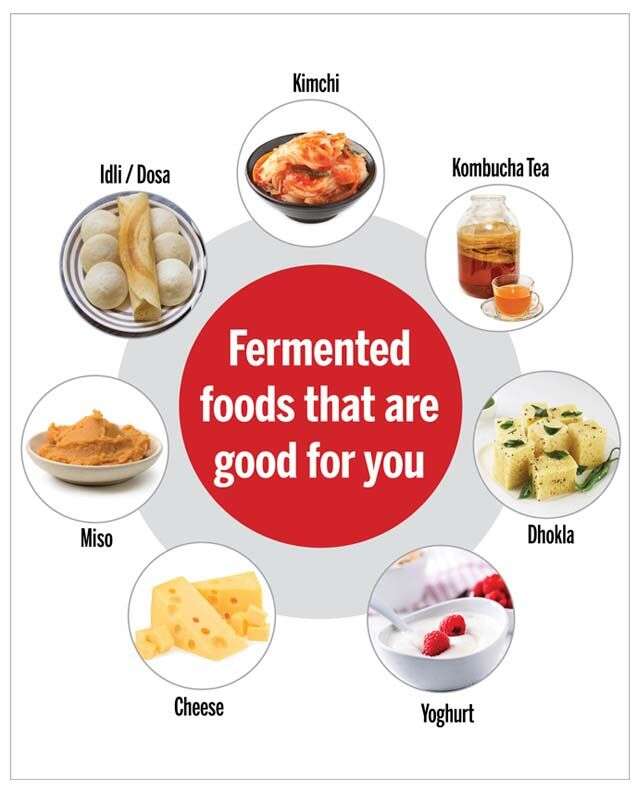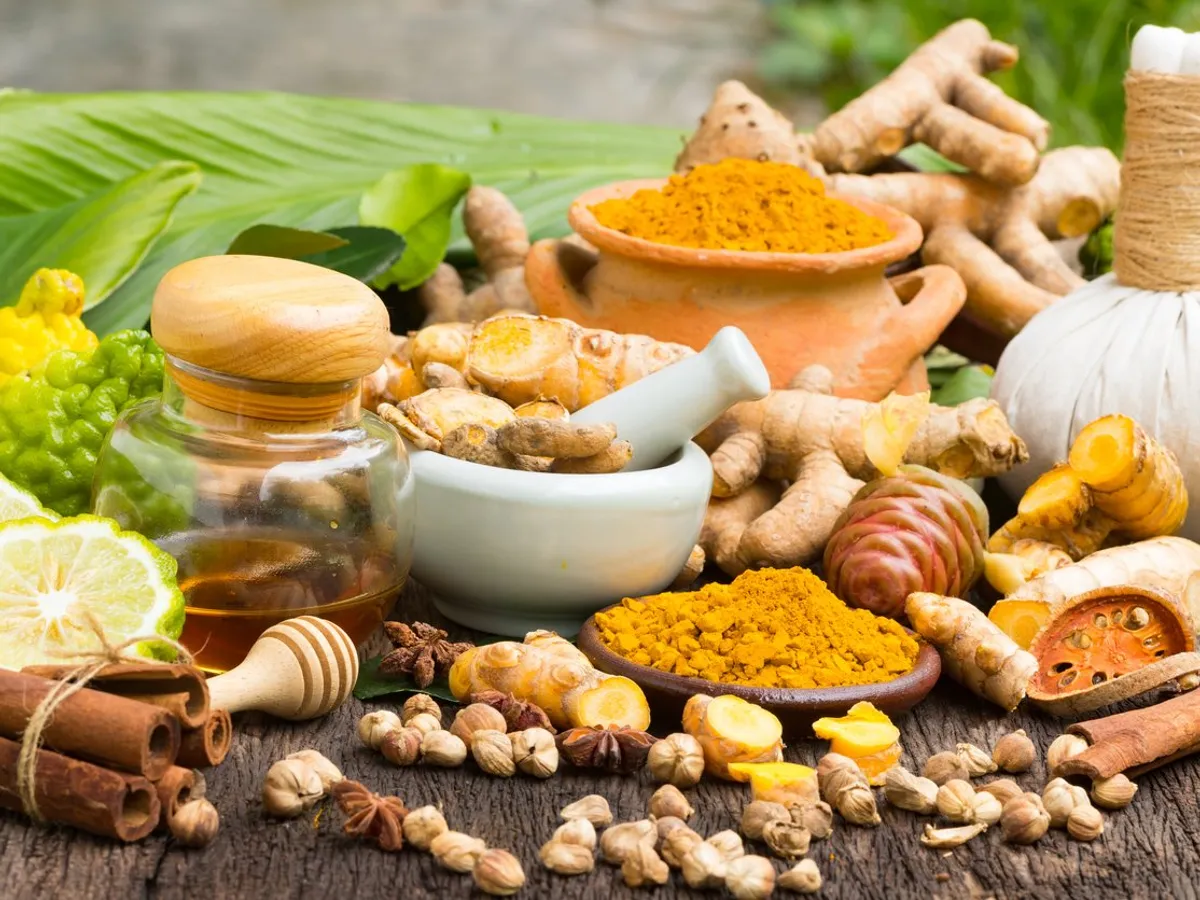Gut-Healing Superfoods: Unlocking the Potential of Nature’s Remedies
Nature’s Remedies: Exploring Gut-Healing Superfoods
Introduction: In the world of nutrition, some foods stand out for their exceptional gut-healing properties. In this blog, we will dive into the realm of gut-healing superfoods and explore how they can support your digestive health and contribute to a thriving gut microbiome.
The Magic of Ginger and Turmeric
Ginger and turmeric are two spices known for their anti-inflammatory properties and potential benefits for gut health. Here’s a closer look:
Anti-Inflammatory Properties: Both ginger and turmeric contain bioactive compounds with anti-inflammatory effects. These compounds, such as gingerols in ginger and curcumin in turmeric, have been shown to help reduce inflammation in the body.
Digestive Discomfort Relief: Ginger has long been used to alleviate digestive discomfort, including nausea, bloating, and indigestion. It can help stimulate digestion, reduce inflammation in the gut, and promote overall digestive wellness. Turmeric, on the other hand, may help soothe gut inflammation and support gut healing.
Creative Ways to Incorporate: There are numerous ways to incorporate ginger and turmeric into your meals and beverages. You can add freshly grated or powdered ginger and turmeric to stir-fries, curries, smoothies, soups, and teas. Consider making a ginger or turmeric-infused water or adding them to salad dressings and marinades for a flavorful twist.
Turmeric-Ginger Golden Milk Recipe: Try making a comforting golden milk by combining coconut milk, turmeric, ginger, cinnamon, and a touch of sweetener. Heat the mixture, and you have a delicious and soothing beverage to enjoy.

Gut-Loving Fermented Foods
Fermented foods offer a range of benefits for gut health. Here’s why they are worth including in your diet:
Probiotic Powerhouse: Fermented foods, such as kombucha, miso, tempeh, and kvass, are rich in beneficial bacteria or probiotics. These live microorganisms can help restore and maintain a healthy balance of gut bacteria, promoting optimal gut health.
Enhanced Digestion: The fermentation process breaks down complex carbohydrates and proteins in foods, making them easier to digest. This can help improve nutrient absorption and alleviate digestive issues like bloating and gas.
Increased Nutrient Bioavailability: Fermentation increases the bioavailability of certain nutrients, making them more easily absorbed by the body. For example, fermentation can enhance the bioavailability of vitamins, minerals, and antioxidants found in foods.
Immune System Support: A significant portion of our immune system is located in the gut. By fostering a healthy gut microbiome, fermented foods can support immune function and help protect against pathogens and harmful bacteria.
When incorporating fermented foods into your diet, aim for variety and moderation. Start by adding a small portion to your meals or snacks and gradually increase as tolerated. Remember to choose high-quality, unpasteurized options to ensure the presence of live probiotic cultures. As always, listen to your body and consult with a healthcare professional or registered dietitian if you have specific dietary needs or concerns.
The Healing Elixir: Aloe Vera
Aloe vera is a versatile plant known for its soothing and healing properties. Here’s why it can be beneficial for your gut health:
Anti-Inflammatory Action: Aloe vera contains compounds like polysaccharides and antioxidants that help reduce inflammation in the gut. By soothing inflammation, it can alleviate digestive discomfort and promote healing.
Gut Lining Repair: Aloe vera is known to support the repair and regeneration of the gut lining. It can help strengthen the intestinal barrier, preventing the leakage of harmful substances into the bloodstream and promoting overall gut health.
Bowel Regularity: Aloe vera has natural laxative properties that can support bowel regularity. It can help relieve constipation by promoting the movement of stool through the digestive tract.
To incorporate aloe vera into your diet, you can try the following tips:
Add fresh aloe vera gel to your smoothies or juices for a refreshing and gut-soothing boost.
Mix aloe vera gel with water or coconut water for a hydrating and digestive-aiding drink.
Use aloe vera gel in salad dressings or sauces for a touch of mild flavor and added gut health benefits.
When using aloe vera, it’s important to choose organic, pure, and high-quality products. If you have any underlying health conditions or are on medications, it’s best to consult with a healthcare professional before incorporating aloe vera into your routine.
The Magic of Bone Broth
Bone broth has gained popularity for its numerous health benefits, particularly for gut health. Here’s why bone broth is considered beneficial:
Collagen and Amino Acids: Bone broth is rich in collagen, a protein that provides structure and support to various tissues in the body, including the gut lining. It also contains essential amino acids, such as glutamine and glycine, which play a vital role in gut healing and repair.
Gut Lining Repair: The gelatin derived from collagen in bone broth helps support the repair and regeneration of the gut lining. It can help reduce inflammation, heal damaged tissues, and promote a healthy gut barrier.
Anti-Inflammatory Properties: Bone broth contains anti-inflammatory compounds, such as chondroitin sulfate and glucosamine. These substances help reduce inflammation in the gut and support overall gut health.
To enjoy the gut-healing benefits of bone broth, you can try:
Sipping it as a warm and nourishing beverage on its own.
Using it as a base for soups, stews, and sauces to enhance their flavor and nutritional value.
Incorporating it into recipes that call for cooking liquid, such as grains, beans, or braised dishes, to infuse them with added nutrients.
When selecting bone broth, it’s important to choose high-quality, organic, and grass-fed sources to ensure optimal nutrient content. You can also make your own bone broth using bones from healthy and ethically-raised animals. As with any dietary changes, it’s advisable to consult with a healthcare professional if you have specific health concerns or conditions.
Conclusion:
Gut-healing superfoods have the power to transform your digestive health. By incorporating ginger, turmeric, fermented foods, aloe vera, and bone broth into your diet, you can nourish and heal your gut, promoting optimal digestion, reduced inflammation, and a thriving gut microbiome.

